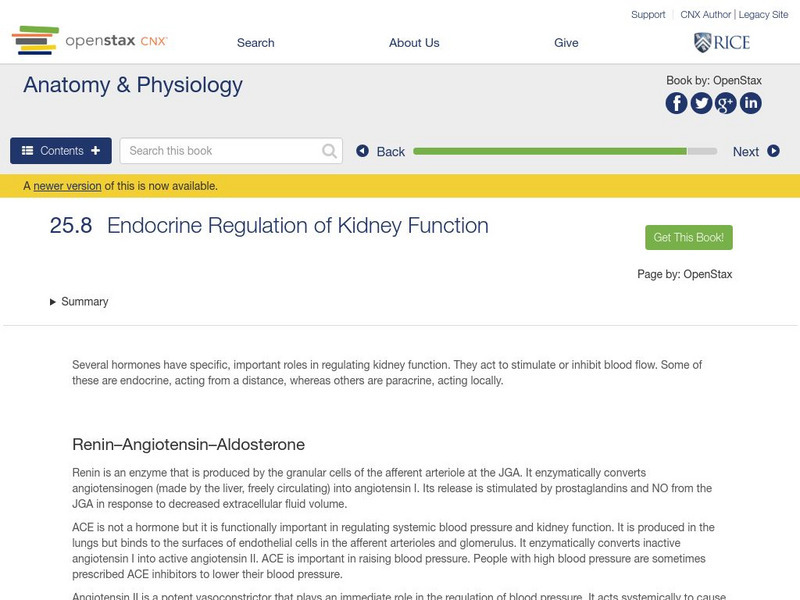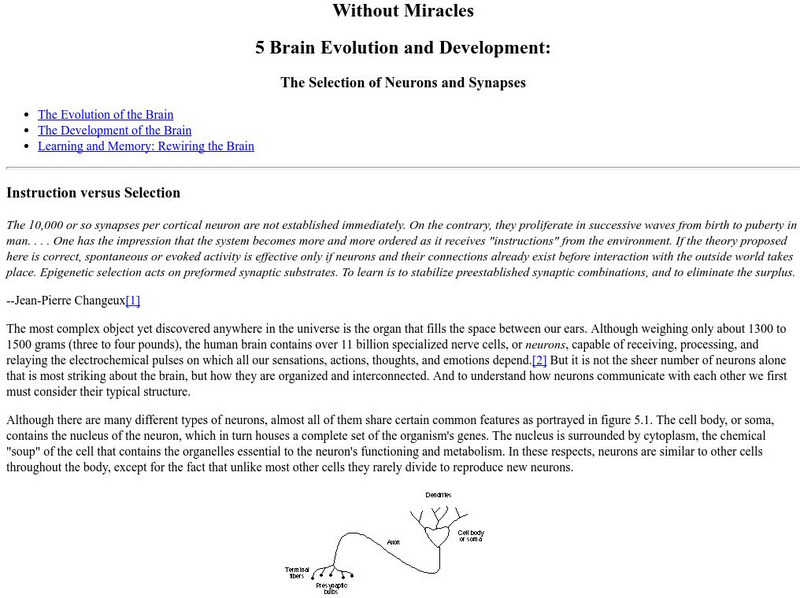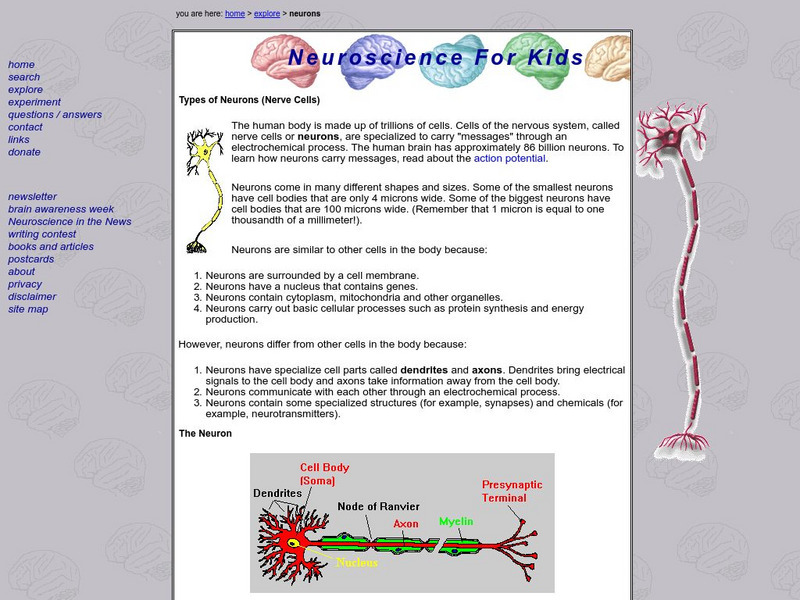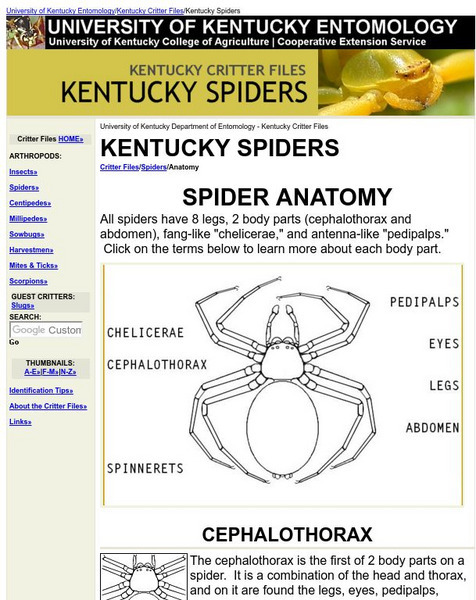Curated OER
The Great Animal Systems Challenge!
Advanced placement biology aces list systems that have evolved over time, adaptations, and structure-function relationships. The resource requires plenty of writing to answer these questions, so allow a few days for them to complete the...
Curated OER
Human Excretion: Living Environment
A solid review of the excretion system that presents diagrams and asks learners to name the labelled parts or to identify which parts perform the particular jobs stated.
Curated OER
Commonly Asked Questions on Vision and Color Perception
Young scholars commonly ask question about vision and color perception which may be difficult to answer without taking. They use this module that contains a list of questions which often arise when biology students are studying the...
PBS
Pbs Learning Media: Life's Grand Design
Are nature's complex forms evidence of "intelligent design"? In this Evolution essay, biologist Kenneth Miller explains how the processes of evolution account for complex structures such as the human eye.
PBS
Pbs Learning Media: Unhinged!
This video segment explores the integral relationship between structure and function in snakes.
University of Washington
University of Washington: Lobes of the Brain
Site dealing with lobes of the brain. Links to various other sites with lots of information.
University of California
Ucmp: Introduction to the Fungi
A wonderful place to learn all about the fungi. click on the buttons at the bottom of the page to go to sections on their life history, systematics and morphology.
OpenStax
Open Stax: Anatomy & Physiology: Endocrine Regulation of Kidney Function
Learn how several hormones have specific, important roles in regulating kidney function. Find out how they act to stimulate or inhibit blood flow.
OpenStax
Open Stax: Anatomy & Physiology: Regulation of Renal Blood Flow
Students learn about the myogenic and tubuloglomerular feedback mechanisms, and explain how they affect urine volume and composition.
OpenStax
Open Stax: Anatomy & Physiology: Physiology of Urine Formation
Focus on the physiology of the urinary system, and discover that different parts of the nephron utilize specific processes to produce urine: filtration, reabsorption, and secretion. Learn how each of these processes works and where they...
Other
Implications of Sequencing Caenorhabditis Elegans Genome for Plant Nematology
From The American Phytopathological Society, this is a detailed discussion of the genomic sequencing of a type of nematode which is a plant parasite, including how knowledge of the genome structure might make it possible to create crop...
PBS
Pbs Learning Media: Animal Mouths
This collection of images of six different creatures, including insects and carnivorous vertebrates, illustrates the wide range of mouth types that exist within the animal kingdom. It also discusses the environment and its impact on the...
University of Illinois
University of Illinois: Brain Evolution and Development
This resource provides information about brain evolution and development.
Science Museum of Minnesota
Thinking Fountain: Spider Glider
With a few readily available supplies, you can make a "spider glider." Visit this site for directions and more about spiders.
University of Ottawa (Canada)
Biodidac: Nervous System of Dugesia
An illustration of the nervous system of a flatworm. Can be downloaded.
University of Oxford (UK)
Oxford University: The Structure of the Brain
This report is entitled "The Structure of the Brain." Scroll down to section 3.2.3 for more on brain anatomy.
York University
York University: How Neurons Talk to Each Other
York University provides a good site on the physiology of nerve transmission. Embedded vocabulary help is available if you need it.
University of Washington
University of Washington: Types of Neurons
A good straightforward presentation of the different forms of neurons based on function. Includes easy to read graphics on the subject.
University of Kentucky
Spider Anatomy
Learn about the basic body parts of a spider. Click on the term and get a brief description.
University of California
Ucmp: Introduction to the Cnidaria
A colorful look at Cnidarians from the University of California. Be sure to click on the 4 buttons on the bottom of the page to see all the info there is on this fascinating phyla!
University of Wisconsin
The Why Files: Brain Trouble
A remarkable medical illustration of the brain is featured in this discusion of the cerebellum and its role in controlling continuous and discontinuous movement.
Other
Waiting: About Brain Injury: A Guide to Brain Anatomy
This website by Attorney Gordon S. Johnson, Jr. provides a video [2:49] "Brain Anatomy Begins with the Skull", descriptions of the parts of the brain, diagrams, and links to a variety of resources about brain functions and brain injury.
Other
The Anatomy of a Spider
A comprehensive site on the anatomy of a spider, complete with diagrams, pictures, and detailed descriptions.
Other
Western Kentucky University: Fungi
This Western Kentucky University site offers excellent information on the characteristics of fungi.




















